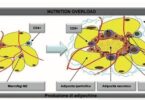Music as therapy is not a new treatment, for three centuries ago, there was knowledge about the effects that music has on people, both on patients or healthy people, and they revealed that it produces positive effects on the body as a sedative, of stimulation and harmony.
Currently, music is used as a tool in the rehabilitation of patients with neurological damage and with problems adapting to new situations.
According to studies carried out by cognition researchers, the relationship between the state of rest and the functioning of memory are elementary components for good executive functioning. An elementary basic concept to understand why certain information is not retained in memory is the interference that prevents the information from being consolidated in long-term memory.
Music is considered to be one of the stimuli that best influences the dopaminergic reward system in humans, which is why its influence on such important aspects as learning and memory is being studied. These types of findings show that music has positive effects on the executive functions of human beings in general. It is even being used as a tool in the rehabilitation of patients with neurological damage, especially in cognitive flexibility, which is the ability to adapt to new situations, seek solutions to various problems, and, in general, it is a skill that allows proper functioning. normal in people.
We live in an age where we find individuals very exhausted. The load of tasks that demand a simultaneous cognitive activity causes the capacities of the executive functions that allow a functional life to diminish. Prolonged exposure to cell phone and computer screens can cause visual and cognitive exhaustion. Memory is an indispensable faculty for people’s lives.
In a very recent study by Martini et al. (2022), they analyzed the influence of rest and music on the consolidation of information in working memory. The study consisted of comparing memory performance through running a word list by the experimenters in two stages, the first list being presented just after six minutes of full rest, and for the second list condition was to have listened to six minutes of music.
The experiment consisted of two sessions. In the first session, a group of 25 participants were asked to rest sitting in a relaxed position with their eyes closed and in the dark for a period of 5.45 minutes. To test the effects of music on memory, another twenty-five participants were asked to listen to music with their eyes closed, with headphones, in the dark, and at a soft and moderate volume for 5.45 minutes. The songs they listened to were those of Aloe Blancc, Smallpools, American love, Can you do this, wWethe Kings, Kids in themoonlight, No regrets, NeonTrees.
The second session started nineteen hours after session one and consisted of the participants having to remember the two lists of words in any order.
The results of the study reveal that there were no differences between the performance in the memory tasks, this means that both the participants who were in a state of rest with their eyes closed and the participants who listened to music remembered the same number of words on average. .
Thus, we can deduce that applying music in the neurorehabilitation of patients is an economical tool, with scientific proof that it can help in the management of various medical conditions.
https://redsocial.rededuca.net/la-importancia-y-el-valor-de-la-musicoterapia







